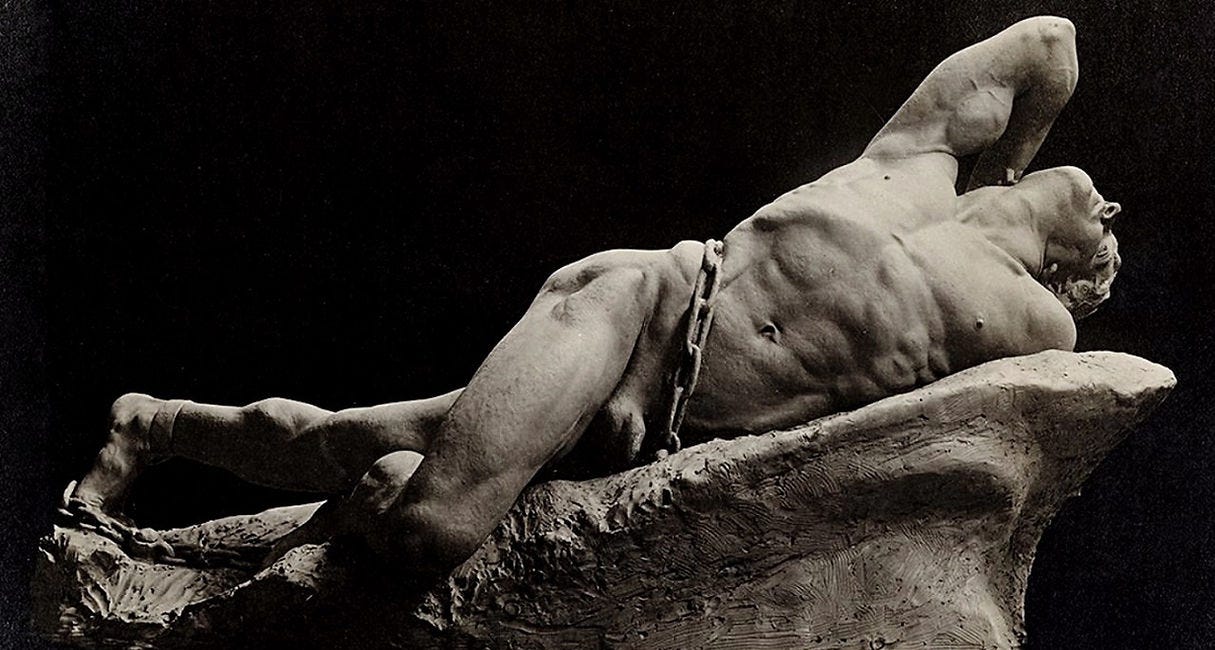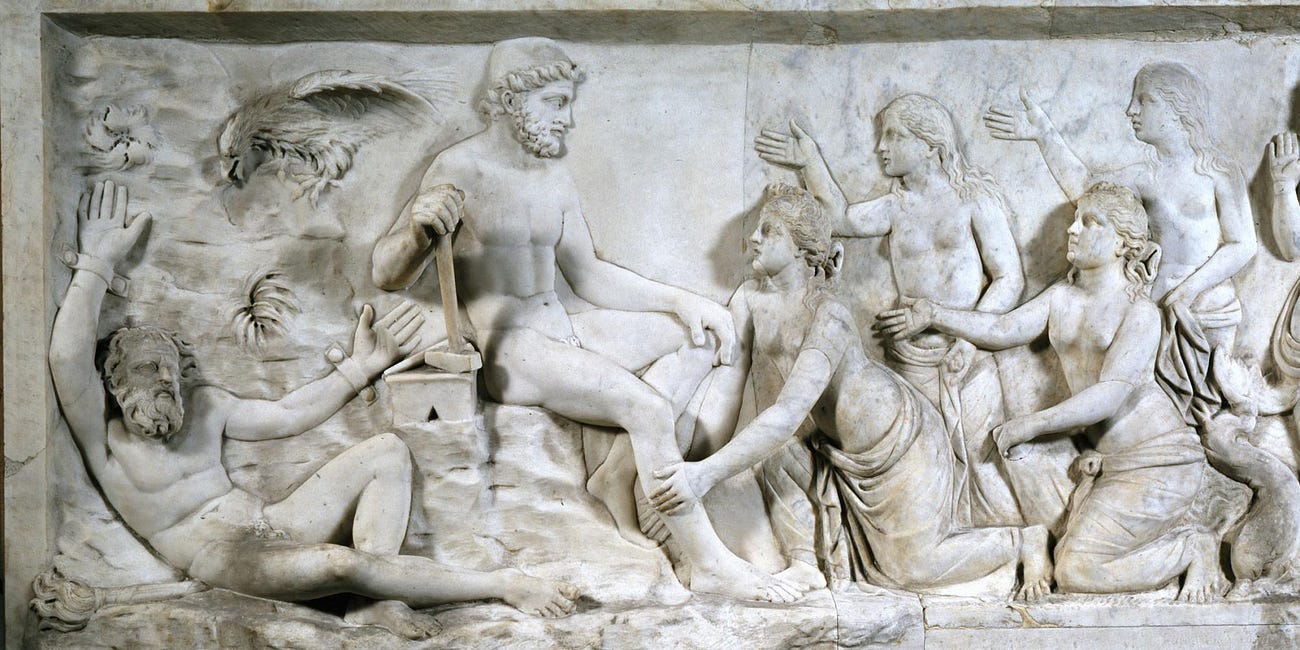The following is an original translation of Aeschylus’ Prometheus Unbound, quoted by Cicero in his Tusculan Disputations.
This speech by Prometheus probably took place near the beginning of Aeschylus’ lost play. Prometheus is chained to a rock high in the remote Caucasian Mountains. Every third day, the Eagle of Zeus feeds on his liver, which constantly regrows to be reconsumed in an endless cycle. The Titans, Prometheus’ kinsmen, have come to the Caucasus to witness his sufferings. Prometheus addresses the Titans.
Prometheus’ speech was quoted, in Latin translation, by Cicero in his philosophical treatise Tusculan Disputations, during a passage which discussed the moral value of suffering. After ages of torture, Prometheus remains defiant, but it is now a defiance mixed with resignation and a longing for an end to suffering:
Race of Titans, kinsmen of my blood,
Heaven’s progeny, behold me shackled, bound
to harsh rocks, like a ship moored fast by sailors
timid and fearful of night’s thundering sea.
Zeus, Cronos’ vengeful son, transfixed me thus;
Hephaistos’ craft then hardened the god’s rage.
With cruel hands he split my limbs with bolts
that, by his handiwork, I miserably
inhabit this bleak stronghold of the Furies.
Every third dismal day, with dreadful swoop,
Zeus’ minister, an eagle, with hooked talons
slashes my liver for its gruesome feast
until, glutted and stuffed on my fat vitals,
it utters a horrendous scream and soars
aloft, its feathered tail fanning my blood.
Then when my liver swells, regenerating,
it swoops back hungry for fresh butchery.
This guardian of my sorrows, whom I nourish,
consumes me living with unending pain,
for, as you see, imprisoned in Zeus’ chains
I cannot hurl this monster from my breast.
Deprived of any aid, I must endure
pernicious tortures, yearning for the death
that ends my woes, yet by the wrath of Zeus,
despite my wish, I keep this bed of anguish.
These ancient, grievous torments, magnified
through horrid ages, fasten on my body
from which drops, melted by the torrid sun,
run ceaselessly down the rocks of Caucasus.
After quoting this speech, Cicero asks, “Seeing a person so afflicted by grief, can we have any doubt that suffering is an evil?” The metaphor comparing the chained Prometheus to a ship moored in a stormy sea is one of the most compelling images in ancient literature. The grandeur and pathos of Prometheus’ words could only have been written by Aeschylus.
Translations © Carey Jobe
Read Jobe’s full essay on the reconstruction of Aeschylus’ lost masterpiece.The Prometheus Unbound of Aeschylus: Rebuilding a Lost Masterpiece
Featured in our New Lyre Winter 2024 issue.
Prometheus by Wolfgang von Goethe
Celebrating the life of Johan Wolfgang Goethe (28 August 1749 – 22 March 1832) with original translations of his finest ballads and poems. In “Prometheus,” the poet comes of age and recognizes his own sovereign creative independence. He does so in the face of Zeus, who wished to deny mankind knowledge of fire.






